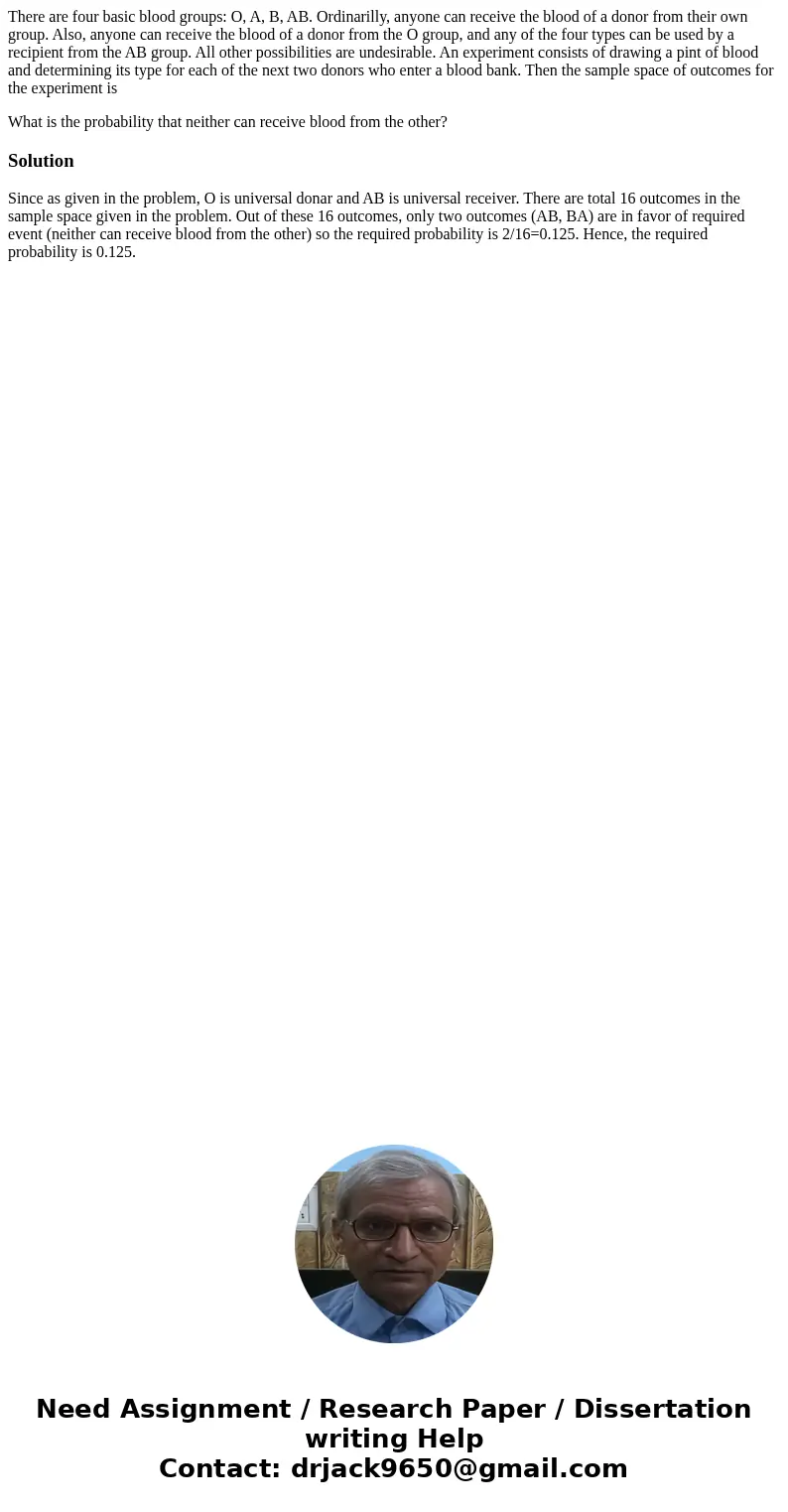There are four basic blood groups O A B AB Ordinarilly anyon
There are four basic blood groups: O, A, B, AB. Ordinarilly, anyone can receive the blood of a donor from their own group. Also, anyone can receive the blood of a donor from the O group, and any of the four types can be used by a recipient from the AB group. All other possibilities are undesirable. An experiment consists of drawing a pint of blood and determining its type for each of the next two donors who enter a blood bank. Then the sample space of outcomes for the experiment is
What is the probability that neither can receive blood from the other?
Solution
Since as given in the problem, O is universal donar and AB is universal receiver. There are total 16 outcomes in the sample space given in the problem. Out of these 16 outcomes, only two outcomes (AB, BA) are in favor of required event (neither can receive blood from the other) so the required probability is 2/16=0.125. Hence, the required probability is 0.125.

 Homework Sourse
Homework Sourse